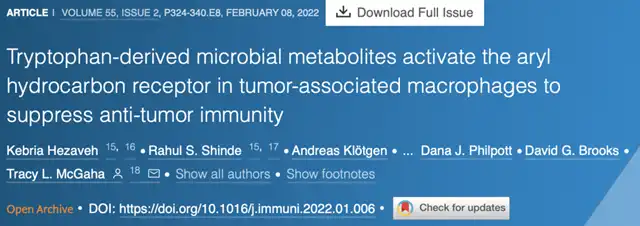Probiotics Once Thought Beneficial Now Linked to Cancer
- Normal Liver Cells Found to Promote Cancer Metastasis to the Liver
- Nearly 80% Complete Remission: Breakthrough in ADC Anti-Tumor Treatment
- Vaccination Against Common Diseases May Prevent Dementia!
- New Alzheimer’s Disease (AD) Diagnosis and Staging Criteria
- Breakthrough in Alzheimer’s Disease: New Nasal Spray Halts Cognitive Decline by Targeting Toxic Protein
- Can the Tap Water at the Paris Olympics be Drunk Directly?
Probiotics Once Thought Beneficial Now Linked to Cancer
- Should China be held legally responsible for the US’s $18 trillion COVID losses?
- CT Radiation Exposure Linked to Blood Cancer in Children and Adolescents
- FDA has mandated a top-level black box warning for all marketed CAR-T therapies
- Can people with high blood pressure eat peanuts?
- What is the difference between dopamine and dobutamine?
- How long can the patient live after heart stent surgery?
Probiotics Once Thought Beneficial Now Linked to Cancer – Study Reveals Unexpected Findings
When it comes to probiotics, a recent study from the University of Toronto has uncovered a surprising twist, suggesting that one of the commonly used probiotics, Lactobacillus, may inhibit tumor immunity and promote cancer growth.
The research, published in the journal Immunity, reveals that Lactobacillus can metabolize tryptophan into indole, increasing the activity of tumor-associated macrophages and suppressing tumor immunity, ultimately fostering the growth of pancreatic ductal adenocarcinoma (PDAC).
Contrary to the widely held belief that probiotics have various health benefits, this study challenges the notion that they are universally beneficial. Probiotics, live microorganisms that confer health benefits when administered in adequate amounts, have been popularly consumed for their perceived advantages in preventing diarrhea, promoting intestinal motility and nutrient absorption, and regulating immune function.
The research team’s findings indicate that the microbial community’s ability to either promote or inhibit cancer is not a new concept. Previous studies have demonstrated a correlation between increased microbial diversity in long-term survivors of pancreatic ductal adenocarcinoma and improved survival rates and immune characteristics within the tumor microenvironment.

https://doi.org/10.1016/j.immuni.2022.01.006
The study delves into the role of tumor-associated macrophages (TAMs), a type of immune cell, in pancreatic ductal adenocarcinoma. TAMs, found to be a major component of immune infiltration in PDAC, provide a supportive matrix for tumor growth and can even resist chemotherapy.
The key player identified in the study is the aryl hydrocarbon receptor (AhR), a critical driver of TAMs’ pro-tumor phenotype. The researchers found that when AhR was deficient in TAMs, there was a reduction in the burden of multiple PDAC tumor models, leading to improved survival rates.
Interestingly, the study also explores the role of Lactobacillus in activating AhR and promoting tumor growth. The researchers discovered that Lactobacillus, particularly L. murinus, can produce indole-3-acetic acid (IAA) and indole lactic acid (ILA), both of which activate AhR and contribute to the pro-tumor effects. When mice were orally administered L. murinus before PDAC tumor implantation, the tumors grew larger compared to the control group.
In conclusion, the study suggests that the activity of AhR in tumor-associated macrophages depends significantly on indole, and certain probiotics, such as Lactobacillus, can metabolize dietary tryptophan into indole, influencing tumor growth and immune suppression. While this research provides valuable insights, it is essential to note that probiotics should not be dismissed entirely, but rather considered with caution. The study serves as a reminder that probiotics may not always equate to health, and their supplementation may not be necessary in all situations.
Probiotics Once Thought Beneficial Now Linked to Cancer
Reference:
Hezaveh K, Shinde RS, Klötgen A, et al. Tryptophan-derived microbial metabolites activate the aryl hydrocarbon receptor in tumor-associated macrophages to suppress anti-tumor immunity. Immunity. 2022;55(2):324-340.e8. doi:10.1016/j.immuni.2022.01.006. PMID: 35139353; PMCID: PMC8888129.
(source:internet, reference only)
Disclaimer of medicaltrend.org
Important Note: The information provided is for informational purposes only and should not be considered as medical advice.



